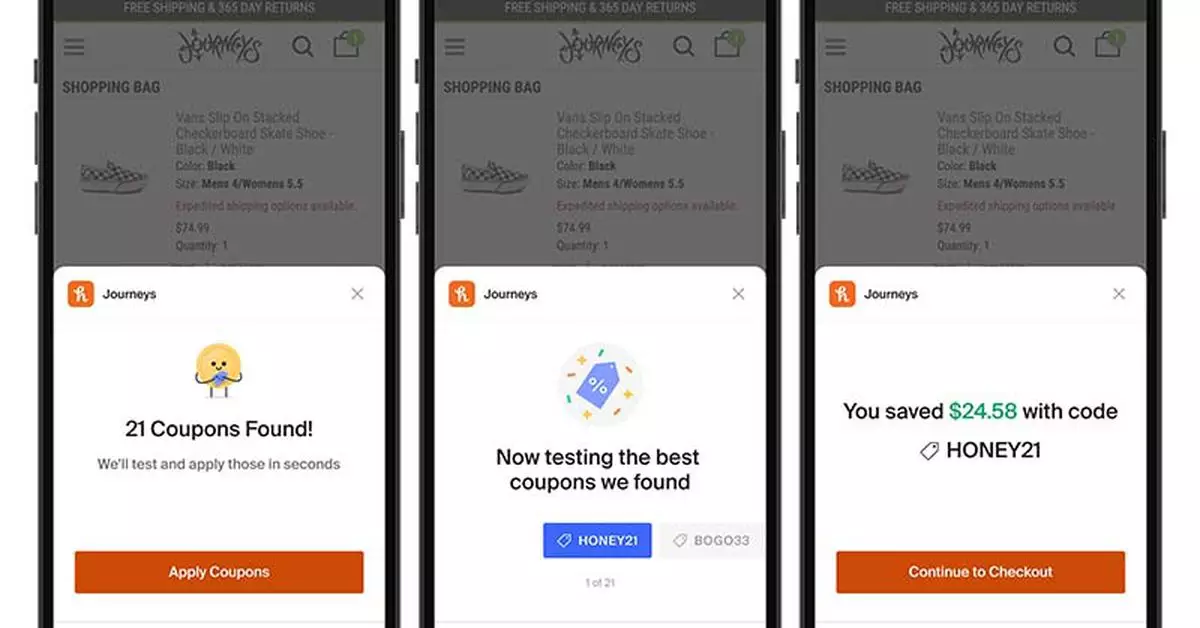In the digital age, the quest for savings has led many consumers to browser extensions that claim to streamline online shopping. One such tool, PayPal Honey, has gained significant popularity for its promise to help users snag the best possible prices on products by automating coupon searches during checkout. However, recent scrutiny has raised questions about the efficacy and integrity of Honey, sparking debates about its true value to consumers and the ethical implications of its operations.
What is PayPal Honey?
PayPal Honey, acquired by PayPal in 2020, functions as a browser extension designed to identify and apply discount codes during online checkouts. Originally marketed as an essential tool for smart shoppers, it boasts the ability to find “every working promo code on the internet.” The appeal is evident, as consumers often experience the frustration of seeking discounts manually, and Honey appears to offer a convenient solution that saves both time and money.
However, this enticing proposition has come under fire, particularly after YouTuber MegaLag’s recent video alleging that Honey operates less as a benevolent savings tool and more as a mechanism that potentially undermines influencers and their ability to earn revenue. MegaLag contends that Honey not only frequently fails to provide genuine discounts but may also intentionally overlook better deals that could benefit consumers.
Claims of Affiliate Link Hijacking
Perhaps the most alarming claim stemming from MegaLag’s critique is the assertion that Honey engages in practices that hijack affiliate revenue streams for influencers. When a shopper clicks on an affiliate link provided by an influencer, Honey reportedly replaces that tracking link with its own. This technical maneuver ensures that if a purchase is made, Honey receives the credit rather than the influencer, regardless of whether Honey had any role in securing a discount. Such practices raise significant ethical questions, as they could disincentivize influencers from promoting products if their efforts go unrewarded.
In response to these charges, Josh Criscoe, PayPal’s Vice President of Corporate Communications, defended Honey, stating that it operates within industry norms, including last-click attribution practices. While last-click attribution is a common approach in online marketing, it does not absolve the concerns raised about transparency and fairness in the influencer economy.
Notably, MegaLag is not the first to question the practices of Honey. Previous discussions on social media platforms and claims from within the tech community have suggested that Honey’s operations may encourage users to defeat the very purpose of affiliate links. In particular, advice from users recommending that they utilize discount codes in other browsers to bypass Honey’s code mechanisms further underscores the growing dissatisfaction with the extension.
Linus Media Group, a prominent player in the tech sphere, opted to sever its sponsorship with Honey in response to similar concerns about the extension’s affiliate practices. This indicates a larger trend in the tech community regarding transparency, and raises speculation about whether Honey’s business model is sustainable in the long term.
The essential question that emerges from this controversy is whether using Honey truly benefits consumers or if it is a tool designed to benefit PayPal at the expense of smaller influencers. Despite the claims of savings, users may find themselves missing out on better deals that are not detected by Honey due to its partnerships with retailers that prioritize the extension’s own algorithms over the best consumer options.
Given the turbulent nature of online shopping, where trust and transparency are paramount, consumers must evaluate whether the convenience of an extension like Honey outweighs the potential ethical pitfalls associated with its operations. As the push for transparency in affiliate marketing grows, consumers are increasingly encouraged to perform their own research—sifting through the myriad options that the online marketplace offers—before placing trust in tools that profess to offer the best deals.
While PayPal Honey presents itself as a cost-saving facilitator for online shoppers, one must critically examine its integrity and practices. In an era marked by both convenience and complexity, informed decision-making is paramount for digitally savvy consumers navigating the nuanced landscape of online shopping discounts.


Leave a Reply